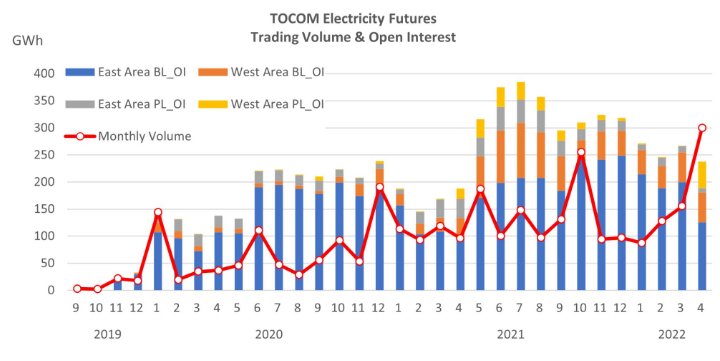TOCOM Energy
Crude rebound continues, demand concern linger on
Fears of an economy slowdown are getting much of the blame for the big sell-off last week, after prices slumped to the lowest levels since the March banking crisis, crude oil futures rebounded sharply on hopes that the US rate cycle will be paused and a stronger-than-expected U.S. labor market report dampened fears of a weakening U.S. economy.
Nonetheless, the market is still poised for a third straight week of losses, with JPX Dubai July contract trading at 62700yen/kilolitre or $73.90/b while the more liquid Sep contract was trading at around $72.00/b. Intermonth spread largely remain steady as OPEC supply cuts kicks in.
The Federal Reserve hiked rates by 25 bps at its latest meeting, bringing the target rate up to 5.25% on the top end, though market hopes the current rate-hike cycle will be paused, oil initially remained under pressure as concerns over the banking crisis and US debt concerns linger on.
The crashes of several banks in the US seems more serious than the 2008-2009 crash. The problem at that time was bad mortgage loans, debtors were unable to pay and were defaulting. This time, these banks investments had no such default risk since most money is invested in US bonds and other low risk securities.
The loans made to governments are fundamentally built on faith, the treasury always can pay by rolling over their debt, issuing new bonds at current rates or what we call lifting the debt ceiling. However, pandemic borrowing has driven US government debt to unprecedented levels just as interest rates rise to fight inflation. As the interest-bearing debt grows and tax revenues, the only resource the Treasury would have to pay interest on the debt dampened, the market believe that default risk in the future is increasing.
There’s a fear that the drying up of the liquidity of the US bonds would exacerbate the collateral discount of the bonds, and weaken the refinancing ability of the banks, and eventually led to a broader banking crisis. As U.S. Treasury debt is the benchmark used to price other domestic debt, that could result in an increase in borrowing cost and further impact the economy.
History is clear that even getting close to a breach of the U.S. debt ceiling could cause significant disruptions to financial markets.
Take another look at the oil market fundamentals.
Market analyst expect oil demand to rise during peak air travel and driving season, gasoil and petrochemical feedstock weakness might be counterbalanced by growth in gasoline and kerosene thus contributing to an overall growth in oil demand.
European diesel cracks post first weekly gain in seven as stocks at main ports fell to a 13-week low from their elevated pre-Russian sanction levels. During the Great Recession of 2008-09, diesel demand fell by around 10pc in some European countries, equivalent to the proportion of European diesel supply that comes from Russia before the war, so the drop in consumption is likely to be outpaced by constraints on supply as Russian imports dry up, supporting European diesel margins in the rest of the year so long as a great recession does not occur.






